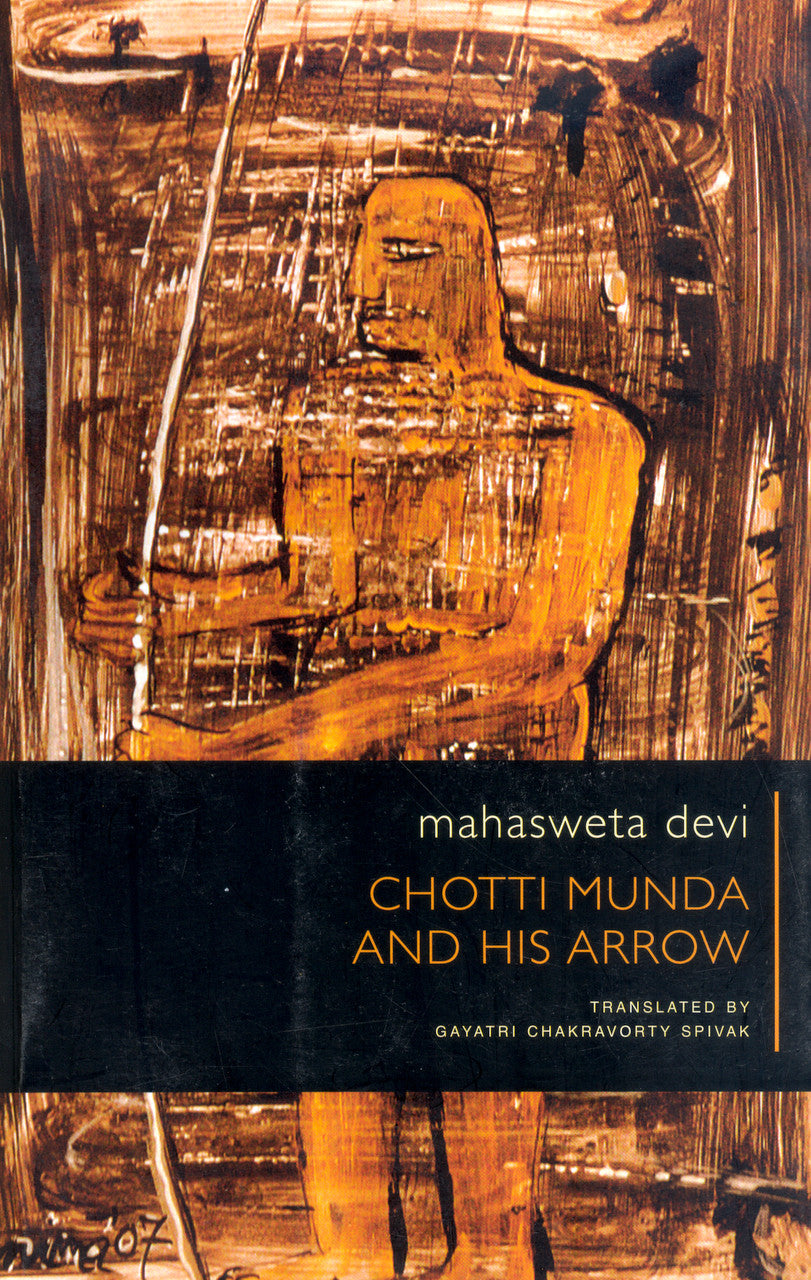Chotti Munda and His Arrow
Chotti Munda and His Arrow
- Description
- Details
- Shipping
Only for sale in India.
‘I had but that one arrow,’ says Chotti Munda, the hero of this epic tale. A 'magic’ arrow that stood for the pride, the wisdom, the culture of his society, a society threatened with inevitable disintegration as its traditional structure crumbled under the assault of ‘national development’. The wide sweep of this novel ranges over decades in the life of Chotti, the central character, in which India moves from colonial rule to independence and then to the unrest of the 1970s. It traces the changes—some forced, some welcome—in the daily lives of a marginalized rural community. And at its core, it celebrates Chotti, legendary archer, wise and farsighted leader, proud role model to his younger brother.
Written in 1980, this novel raises questions about the place of indigenous peoples on the map of India’s national identity, land rights and human rights, and the justification of violent resistance as the last resort of a desperate people. Although rooted in India, the novel addresses some of the most burning concerns across the world and is essential reading for those who ponder the contemporary human condition.
‘Her stories of the subaltern will live forever as long as there’s oppression in the world and the poorest of the poor need a voice. In today’s atmosphere of growing intolerance, it’s imperative to read her work and remind ourselves of her lifelong fight for those who are sought to be silenced.’—The Hindu
- ISBN: 9780857426772
- Pages: 360
- Size (inches): 6 x 9
- Format: Paperback
- Publication Year: 2002
- Series: The India List and The Selected Works of Mahasweta Devi
- Category: Fiction and Women in Translation
If you are ordering from India, your order will be shipped from Seagull Books, Calcutta. Shipping is free for orders above ₹999. It takes a maximum of 7 working days your order to be delivered.
If you are ordering from the US or the UK or anywhere else in the world, your order will be shipped from the University of Chicago Press' distribution centre, Chicago.
Please note: For customers paying in currencies other than Indian rupee or US dollar, prices will be calculated according to the currency conversion rate at the time of purchase and may vary from the printed price.
Couldn't load pickup availability
Share

Seven years behind; I must have read it in 2018!
A worthy book in many respects. It has:
- the Foreword by Gayatri Chakravorty Spivak,(2002), a brief one of one page;
- An interview with Mahasweta Devi by ‘Gayatri Chakravorty Spivak, titled ‘Telling History’, (19 pages with 17 Notes), a very close interaction by the two important persons;
- ‘Chotti Munda and His Arrow’, the story ( 340 pages, with 39 Notes)
- An Afterword by Gayatri Chakravorty Spivak,(2002), a brief one of four pages with two notes.
It is a translation from Bengali to English. As she desires, it made me like to read the original, in order to listen to the dialect!
It is a story of a people; a people of a language with no script. But they know to weave songs, thereby to tell stories – of sorrow as well as joy. They create for themselves the ‘grandest kind of literature’! The author understands the meaning of the silence in between the lines spoken or sung and brings it the fore, making the speech, song and story comprehensible to others.
The story is centered around their leader. Can we think of the leader without his bow and arrow? Can we think of the leader without his wife? Can we think of him without his sons and daughters and relatives and friends? Can we think of them without their knowledge, skills and attitudes?
Their life is interwoven with other tribes and the so-called untouchables; the nurturing relationships.
And also with the police, the land owners, money lenders and many others; the dominating ones.
Their life is in the woods. And they watch its disappearance. They also watch roads coming up.
To lead a life with dignity remains the penultimate motive. Their very struggle to fill their stomach seems to be for that sake.
They fulfill their relational responsibilities in spite of the struggle they are subjected to, whereas others do not. They remain straight like an arrow, whereas others crooked. They set an example for others but others do not.
The arrow, symbolising their knowledge, skill and attitude when released towards a target is sure to do good to all. The early it is realised the better for all of us.
In addition to the cry of adivasis in the end of the story, the restraining hands of the non-adivasis give hope.
It is a story of hope!
About Us
Seagull Books (estd 1982) has been crafting books with an eye to both exceptional content and radical design. What began highly risky business of publishing books-books on alternative cinema, philosophy, culture-continues to be a passionately felt need of the hour: manuscripts that need to see the light of day, instinctive and theatre, visual arts, to reach a readership, to stimulate minds, to change outlooks. Read More
Subscribe to our newsletter
- Choosing a selection results in a full page refresh.
- Opens in a new window.

